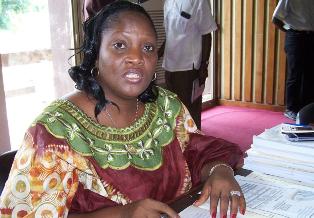Ebola Crisis: No complacency amid reported progress
Latest statistics from Liberian Health Ministry authorities put the number of people succumbing to the deadly Ebola virus in the country at 2,700 out of a total of about 5000 in the West African sub region. Despite the huge death toll, the disease may appear to be gradually vanishing even though only syndromic treatment is being administered in the absence of a cure.
For the past week, medical authorities in the country have been suggesting a drastic decline in the number of cases and deaths at the various treatment units across the country. Further confirmation was made recently by President Ellen Johnson-Sirleaf upon her return from Lofa County in the northwest of the country. While one may not want to attribute the drastic decline in the number of cases at the various units to the reemergence of the dry season considering the irresistible nature of the Ebola virus during such weather (according to medical authorities), at least the tireless efforts of health workers, backed by support from the Government of Liberia and its international partners are tangible factors that can be related to such progress.
However, being very cognizant of the first Ebola outbreak early this year when everyone thought the disease had been eradicated, complacency must be ruled out of what appears to be “victory over Ebola” at this particular point in time of the ‘war against the disease, as evidenced by pronouncements about decline in the number of cases, especially in Lofa-one of the main epicenters. The complacent nature of Liberians is something over which one must ponder as these pronouncements are made about the current status of this deadly disease that has taken away hundreds of lives in Liberia, while hundreds are currently at the mercy of the Almighty God and health workers at the various Ebola Treatment Units or ETUs across the country.
And if and only if the emergence of the ‘dry season’ which is reported to be a serious threat against Ebola, is something to which the reported decline is also attributed, then the need to continue the fight against the disease cannot be over-emphasized. Cautions in acknowledging progress in the ‘battle against Ebola’ must be exercised to avoid complacency among the population in continuously adhering to all of the necessary preventive measures outlined and publicized by the Government of Liberia, through the Ministry of Health and Social Welfare and partners.
The government and the entire Liberian population must continue to vigorously engage this deadly disease as if “it was just emerging and spreading rapid” as we previously had in July and August this year. In so doing, the emerging community-based approach against the disease as we currently have, must continue to be encouraged and supported, while the issue of contact tracing, which has been our greatest weakness, must be stepped up- also prioritizing the community-based approach.
Let it also be made emphatically clear that if the issues of personnel, medication and proper care for Ebola suspects and patients at ETUs run by the government are not properly addressed and measurable with standards of those of the international medical charity-Medicins Sans Frontieres or MSF and other organizations, the death toll at these government-run treatment units will continue to increase.
There must now be less publicity (too much talking) and un-necessary bureaucracies in handling the crisis, with more concentration on the respective ETUs run by the government as it is done by other organizations. We can only be assured of an Ebola-free Liberia if and only if we as a government and people follow and apply what these international organizations are currently doing- other than that, there may still be problem.
[bsa_pro_ad_space id=1]




















